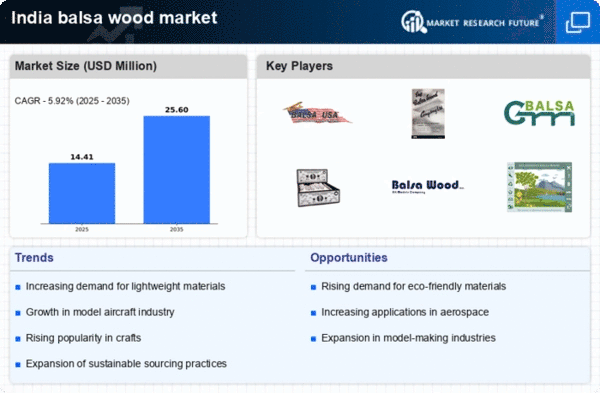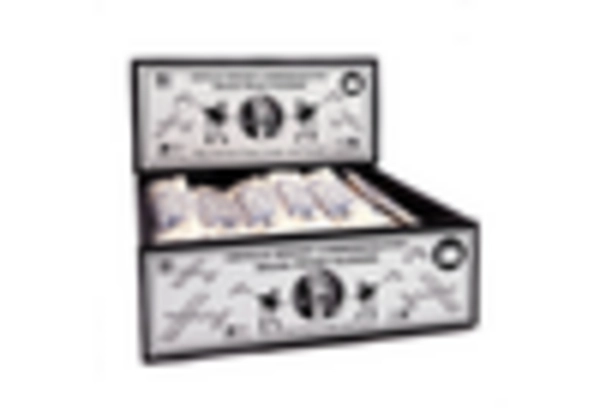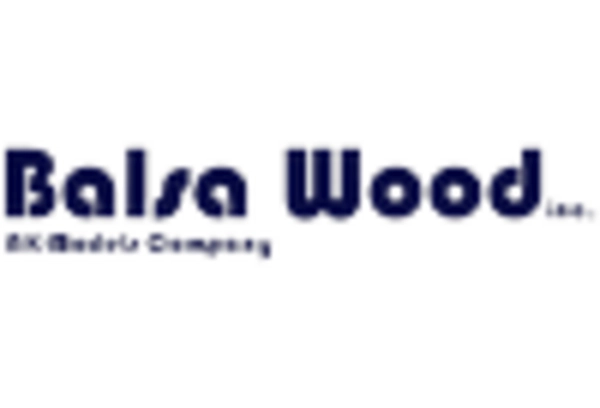The balsa wood market in India is characterized by a competitive landscape that is increasingly shaped by innovation, sustainability, and strategic partnerships. Key players such as Balsa USA (US), Balsa Wood Company (US), and Balsa Composites (US) are actively pursuing strategies that emphasize product differentiation and market expansion. Balsa USA (US) has focused on enhancing its product offerings through sustainable sourcing practices, which aligns with the growing consumer demand for eco-friendly materials. Meanwhile, Balsa Wood Company (US) has been investing in digital transformation initiatives to streamline operations and improve customer engagement, thereby positioning itself as a leader in customer service within the market. Collectively, these strategies contribute to a dynamic competitive environment where companies are not only vying for market share but also striving to meet evolving consumer expectations.In terms of business tactics, companies are increasingly localizing manufacturing to reduce lead times and optimize supply chains. This approach appears to be particularly effective in a moderately fragmented market, where the presence of numerous small and medium-sized enterprises allows for a diverse range of products and services. The collective influence of key players is significant, as they set benchmarks for quality and innovation that smaller competitors often strive to emulate.
In October Balsa Composites (US) announced a strategic partnership with a leading Indian aerospace manufacturer to supply balsa wood for lightweight aircraft components. This collaboration is expected to enhance Balsa Composites' market penetration in the aerospace sector, which is increasingly seeking lightweight materials to improve fuel efficiency. The strategic importance of this partnership lies in its potential to position Balsa Composites as a key supplier in a high-growth industry, thereby expanding its revenue streams and reinforcing its competitive edge.
In September Balsa Wood International (US) launched a new line of eco-friendly balsa wood products aimed at the craft and hobby market. This initiative not only caters to the rising consumer preference for sustainable products but also diversifies the company's product portfolio. The launch is indicative of a broader trend within the industry, where companies are increasingly aligning their offerings with sustainability goals, which may enhance brand loyalty and customer retention.
In August Balsa Wood Supply (US) implemented advanced AI-driven analytics to optimize its inventory management and forecasting processes. This technological integration is likely to improve operational efficiency and reduce costs, allowing the company to respond more swiftly to market demands. The strategic move underscores the growing importance of digitalization in the balsa wood market, as companies seek to leverage technology for competitive advantage.
As of November the competitive trends within the balsa wood market are increasingly defined by digitalization, sustainability, and strategic alliances. Companies are forming partnerships to enhance their product offerings and market reach, reflecting a shift towards collaborative innovation. The competitive landscape is evolving from a focus on price-based competition to one that prioritizes technological advancement, product innovation, and supply chain reliability. This transition suggests that future differentiation will hinge on the ability to adapt to changing market dynamics and consumer preferences.
















